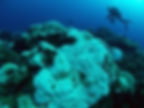The Lungs of the Ocean: How the Coral Restoration Foundation is Saving Coral Reefs
- Ben & Ciara
- Jan 30, 2023
- 4 min read
Updated: Aug 14, 2023
Learn about efforts to conserve and restore the ocean’s coral reefs from the world’s largest reef restoration organisation, the Coral Restoration Foundation.
Coral reefs are some of the world’s most vital ecosystems, but did you know they are also one of the most at-risk? Coral reefs provide shelter to marine life, absorb 70-90 million tonnes of carbon from the atmosphere per year, protect coastlines from storms and erosion, and provide food, income, and protection for half a billion people worldwide!

In the last 30 years alone, the planet has lost over half of its coral reefs, and without immediate action, shallow-water coral reefs are projected to vanish by the end of this century. As “the lungs of the oceans”, losing coral reefs would be like losing every rainforest on the planet! Humanity has never experienced the loss of an entire biome, and it is difficult to predict the full extent of those consequences.
With all this in mind, there is, however, plenty of reason to hope! To help fight for coral reefs, organisations around the world are developing methods to ensure that reefs have a fighting chance at a promising future. In July of 2022, we had the incredible opportunity to visit The Coral Restoration Foundation (CRF), the largest reef restoration organisation in the world! Based in the Florida Keys, CRF are leading the charge in protecting Florida’s 350-mile-long coral reef, as well as creating tools and procedures designed to be used by coral protecting organisations and restoration efforts around the world.

The Importance of Coral Reefs
As we mentioned at the beginning of this post, coral reefs provide habitats, nourishment, and shelter to more than 25% of all aquatic species, and support over 300 million humans in communities across the globe. They also act as nurseries for many fish species, providing a secure location for them to grow and reproduce.
Not only are coral reefs important for the marine life they sustain, but they also play a major role in preserving the planet's overall health. As carbon sinks, coral reefs help to remove and store carbon from the atmosphere, as reduce the consequences of natural disasters.

Threats to Coral Reefs
The decline in coral reefs is due to many different factors, with the largest threat being climate change. Climate change is causing the ocean to warm and become more acidic due to the ever-growing amounts of carbon it is absorbing from the atmosphere. This instability is making it difficult for coral to grow and survive. This phenomenon is also known as coral bleaching, where warm temperatures and toxins cause corals to release algae that lives within its structure, causing it to turn white. The coral is not dead, however, but can die if stress becomes too extreme.
Another major threat to coral reefs is pollution. Pollution can come from many sources, including agricultural runoff, untreated sewage, toxic sunscreens, oil spills (like this one Exxon perpetrated) and industrial waste. These pollutants can carry bacteria previously unknown to corals, and cause coral to become diseased or aid in creating an environment difficult for coral to grow and survive.
Biodiversity loss is also a major threat to coral reefs. Typically home to thousands of different species of fish, invertebrates, and other marine life, when these coral species disappear, it can have a ripple effect on the entire ecosystem. In Florida alone, the state’s famous coral reef has declined from what it was in the 1970s to just 2% of its former self. This decline is not unique to Florida and is happening all over the world.

Conserving Coral
The Coral Restoration Foundation is devoted to safeguarding the genetic diversity of coral by working with a wide variety of coral species, and promoting this mission through restoration, science, and education.
Genetic diversity is essential for the survival and adaptation of coral reefs in the face of changing conditions. By collaborating with more than one thousand genotypes of corals across twenty different species, CRF is helping to ensure that these incredible ecosystems survive by identifying which corals are the most resilient and have the best chance of surviving climate change.
The overall coral restoration process begins by collecting coral spawn. It’s then taken to the CRF coral nurseries where it is grown into juvenile or mini corals. Once the corals reach a certain size, they are then transplanted back to the reef using the coral tree method. These coral trees allow CRF to raise corals in their natural environments four to six times faster than they would naturally grow!

The organisation then returns the coral to the areas where they naturally grow best by diving down to glue the corals to the rest of the reef with a plant-based, non-toxic, cement-like epoxy that allows them to secure the corals to the reef. This process ensures that these corals have the best chance of survival in the early stages of their life cycle in the wild.
Organisations like the Coral Restoration Foundation are another shining example of how through developing innovative technologies, they are working to ensure that future generations have a chance to experience the wonder and beauty of these precious ecosystems. Not only are coral reefs essential to our oceans and humanity, but they also remind us of the connectedness of all living things. They stand as a reminder of the consequences of our behaviour on our environment, and just how much there is to lose.
As individuals, we can support these efforts by learning about the issues facing coral reefs, supporting conservation organisations, and making conscious choices that not only benefit us, but also the ecosystems we all share.
For more green projects, inspiring people, and innovations working to save our planet, be sure to follow us on Instagram @goinggreenmedia or check out the Going Green YouTube Channel.


















